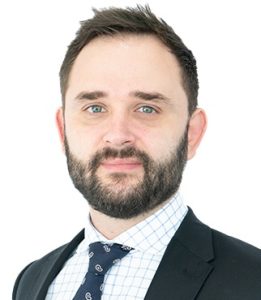Surgical Error or Injury Lawyers
Thousands of patients are injured because of surgical errors and mistakes each year. These injuries can be very severe, and many patients will require lifelong care and treatment as a result. In addition to the physical damage, the experience can also be emotionally traumatic for both the patient and their family.
Although surgical errors and mistakes occur for many reasons, not all surgeons perform their duties with the level of diligence that is expected and required of them. Even the most experienced surgeons and specialists sometimes make mistakes. In most instances, surgical errors or injuries are caused by some form of human error. They are usually completely preventable with the exercise of reasonable skill and care on the part of the operating surgeon or doctor.
Our team of specialist medical negligence lawyers are experienced in acting for patients and their families in respect of surgical errors and mistakes made by their surgeons or specialists all around Australia. We understand the devastating effects of having suffered an injury or a worsened medical condition, or experienced the loss of a loved one, because of a negligently caused surgical mistake or error.
We’ll be here for you every step of the way guiding you through the process in your medical negligence claim. We have the expert knowledge, expertise and a proven track record needed to obtain outstanding results in all types of medical negligence compensation claims involving surgical errors and mistakes.
We’ll act for you in your surgical error or injury claim on a no win, no fee basis with no upfront costs. See our why choose us page for many more reasons as to why so many Australians choose Longton Compensation Lawyers over anyone else for their surgical error or injury compensation claims.
When can I claim compensation for a surgical error or mistake?
The most common causes of surgical errors and mistakes in public and private hospitals that give rise to medical negligence compensation claims are:
- Lack of training or experience on the part of operating surgeon (i.e. incompetence)
This is most common with trainee doctors or registrars in public hospitals particularly in gynaecological surgery or complex abdominal surgery.
It occurs when a surgeon is not properly trained, or not trained to handle the surgical procedure or operation involved and, therefore, should not perform the procedure. Instead, the surgeon should refer the patient for treatment to a more experienced colleague.
Although this may seem like common sense, many surgeons commit medical negligence or malpractice every year because they overestimate their ability to successfully handle the operation or surgical procedure.
- Poor or insufficient pre-operative planning and preparation
Pre-operative or pre-surgical planning and preparation is critical to improving surgical outcomes, reducing surgical error rates, and to prevent anticipated and unanticipated problems and injuries during surgical procedures.
There are 3 main elements of a complete preoperative plan:
- Formulation and planning of a desired “end” result.
- Development of a surgical “tactic” or a step-by-step process to achieve the desired result.
- Operative technique, including the type of operating room, equipment and instruments required, patient position, and any other special requirements.
- Human error resulting in incorrect location of incisions or improper surgical techniques
Human errors are generally caused by a lack of a formal system to verify the site or type of surgery or a breakdown of the system that verifies the correct site of surgery or type of surgery due to communication errors between doctors, nurses and other medical staff, as well as non-compliance with pre-operative surgical “tactic” or a step-by-step process.
The other contributing factors to surgical errors or mistakes involve:
- Emergency cases.
- Involvement of multiple surgeons or treatment providers.
- Patients requiring multiple surgical procedures.
- Patients being obese.
- Patients having deformities or anatomical variances or variations.
- Time pressures.
- Unusual equipment or setup.
- Unusual equipment or setup.
- Fatigue
Doctors are often overworked and fatigued, which can result in serious errors during surgery due to lack of focus and attention.
- Miscommunication between medical professionals
Miscommunication often occurs due to illegible handwriting or mishearing or misunderstanding directions between doctors, nurses and other medical professionals. Although a minor error, it can have disastrous consequences for the person having surgery.
- Insufficient stuffing
Due to not having support staff like operating theatre nurses or post-operative staff who are required to check on the status of a patient after surgery and report on any post-operative complications.
- What are the consequences of surgical errors or mistakes?
Surgical errors or mistakes lead to severe consequences for patients and include:
- Performing the wrong type of surgery, including where surgery is performed on the wrong body part or on the wrong patient.
- Carrying out surgery that is not indicated or necessary.
- Leaving a surgical tool, such as a sponge, towel or retractor in the body of the patient at the conclusion of the operation.
- Damage to surrounding organs, such as bowel perforations, resulting in septicaemia, transacted ureters, bladder and bowel perforations etc.
- Vascular or arterial injuries resulting in internal bleeding, which may go undetected, significantly increasing the risk of death or severe complications for the patient.
- Damage to nerves resulting in muscle weakness or full or partial paralysis.
- Unnecessary scarring due to incorrect or poor surgical technique and planning.
- Unnecessary amputation of a body part or the amputation of the wrong body part.
- Not completing the surgical procedure by failing to exercise or remove all cancer tissue where complete excision was possible or indicated.
- Death.
Contact us today, and start with a free consultation by clicking “Make a Booking” to receive our preliminary expert advice.



